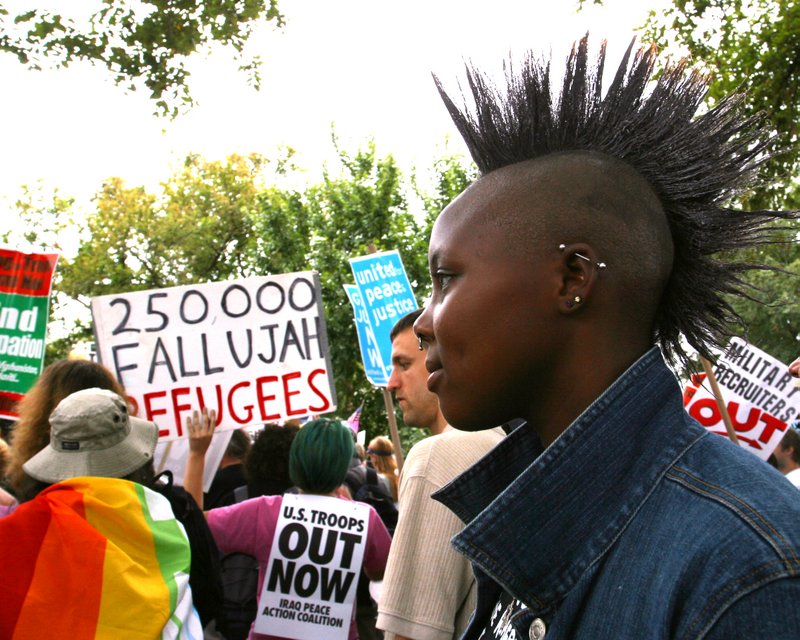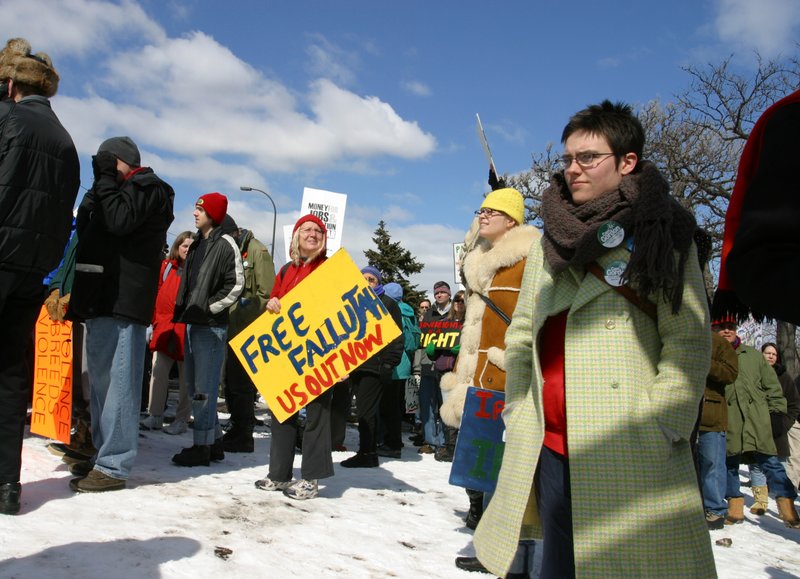
When Bush gives his state of the union address in a few days, he will probably talk about Iraq and the “surge”, but he probably won’t mention Fallujah.
In 2004 Fallujah, Iraq, a city of 600,000 persons was attacked by the US after a handful of mercenaries from the firm Blackwater were killed while transporting refrigerator supplies to a military base. There was a news blackout about the siege, but there were reports of many civilian deaths and the use of illegal weapons by the US.
Now,three years later, the situation in Fallujah is still bleak. A correspondent for the Independent entered the city and reported for the paper. He must be a long term resident, because the city is still under siege. There are 27 checkpoints along the road to Fallujah making it the most difficult city to enter in the world.
What does one find when they arrive?
Its streets, with walls pock-marked with bullets and buildings reduced to a heap of concrete slabs, still look as if the fighting had finished only a few weeks ago.
Besides the devastated buildings, is anything working? Are the utilities functional?
Others confirmed that Fallujah was getting one hour’s electricity a day. Colonel Feisal said there was not much he could do about the water or electricity though he did promise a man that a fence of razor wire outside his restaurant would be removed.
But the radio station is working; the US made sure that it is.
“My name is Sarah and I am in psychological operations,” said another US officer and proudly showed us around a newly established radio Fallujah.
And the city still has a hospital.
When I asked what the hospital lacked Dr Kamal said wearily: “Drugs, fuel, electricity, generators, a water treatment system, oxygen and medical equipment.” It was difficult not to think that American assistance might have gone to the hospital rather than the business development centre.
Colonel Feisal said things were getting better but he was mobbed by black-clad women shouting that their children had not been treated.
“Every day 20 children die here,” said one. “Seven in this very room.”
The doctors said that they were tending their patients as best they could. “The Americans provide us with nothing,” said one mother who was cradling a child. “They bring us only destruction.”
Someone should superimpose a dollar ticker over the video of Bush’s state of the union address that ticks off in real time the amount of money spent in iraq while Bush talks about his meager successes there and our faltering economy.
Cross posted at http://silencedmajority.blogs….


33 comments
Skip to comment form
Author
Can you believe that was our policy? I’m still shocked.
and this tragedy has America’s name all over it…
The whole thing enrages me.
Thanks for the update kayakbiker. I was wondering the other day how they were doing there, and in Hilla too. I wish it was better news.
out how much we’re spending to kill Iraqis, which is a large amount for every American. Roughly speaking, it will probably end up costing us $1 trillion or $2 trillion for this war, according to the various estimates that have been made.
So let’s take $1 trillion as our figure.
That’s a lot of money for America, true.
But think of how much money that is for Iraq. To put that in perspective, Iraq’s economy is about $100 billion per year. And that’s a generous estimate. So the money we’re gonna spend is enough to double the standard of living of everybody in Iraq for an entire decade.
Of course it is buying nothing but death and destruction and a horrible humanitarian crisis that makes Sudan look like a Sunday picnic.
If this show wasn’t being run by greedy war criminals, it would be enough money to realize any dreams that Iraqis might have had for their society, no matter how grandiose. But for that to have happened you’d have to have let the Iraqis run their own reconstruction, rather than turning it over to disaster capitalists from BushCo Inc.
if bush came clean in this last SOTU? I know, I know… but wouldn’t it ust be the moment to remember in all of our lives?
He could single-handedly save this country. In one speech. Just open up the curtains.
http://preview.tinyurl.com/245cl7
— Fallujah:The Flame of Atrocity, Chris Floyd, Empire Burlesque (video documentary)
There should be much more exposure on this issue!